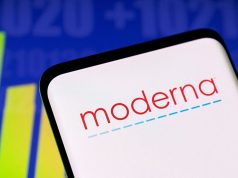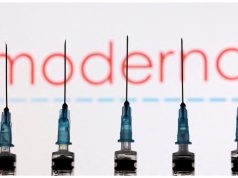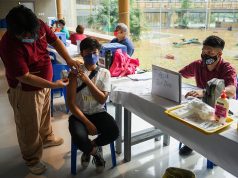
Merck MRK.N said on Monday the U.S. Food and Drug Administration has approved its next-generation vaccine to protect adults against the pneumococcal disease.
The disease can lead to infections in several parts of the body including the lungs, where they can cause pneumonia. There are around 100 different strains of the bacteria that can cause those infections.
Merck‘s vaccine, branded Capvaxive, helped produce an immune response against all 21 serotypes, or variations of the bacteria, that the shot targeted in a variety of adult populations across studies.
The drugmaker said the vaccine has a wholesale acquisition price of $287 per dose, but most individuals will likely have access to it at no out-of-pocket cost if it gets a routine recommendation from the Centers for Disease Control and Prevention’s advisers.
The company expects the vaccine to be available by late-summer, subject to CDC advisers’ recommendation.
The advisers to the CDC are expected to discuss the vaccine in a meeting later this month.
Capvaxive is approved for adults 18 years of age and older, according to the FDA’s letter.
Pneumococcal disease spreads through direct contact with respiratory secretions such as saliva or mucus. Children younger than five-years old and adults 65 years and above are at an increased risk of contracting the disease.
Merck currently has two approved pneumococcal shots — Vaxneuvance that is given to six weeks or older individuals and Pneumovax 23 for adults 50 years and older as well as two-year olds and above who are at an increased risk of the disease.
Merck competes with Pfizer PFE.N in the U.S. market for pneumococcal vaccines and hopes to gain a majority share with the launch of Capvaxive.
Pfizer’s shot, Prevnar 20, was approved in 2021 for use in adults aged 18 years or older and protects against 20 serotypes. It is also approved for use in six-weeks old infants to 17-year olds.
—Reporting by Bhanvi Satija, Sneha S K and Puyaan Singh in Bengaluru; Editing by Shailesh Kuber and Shilpi Majumdar








